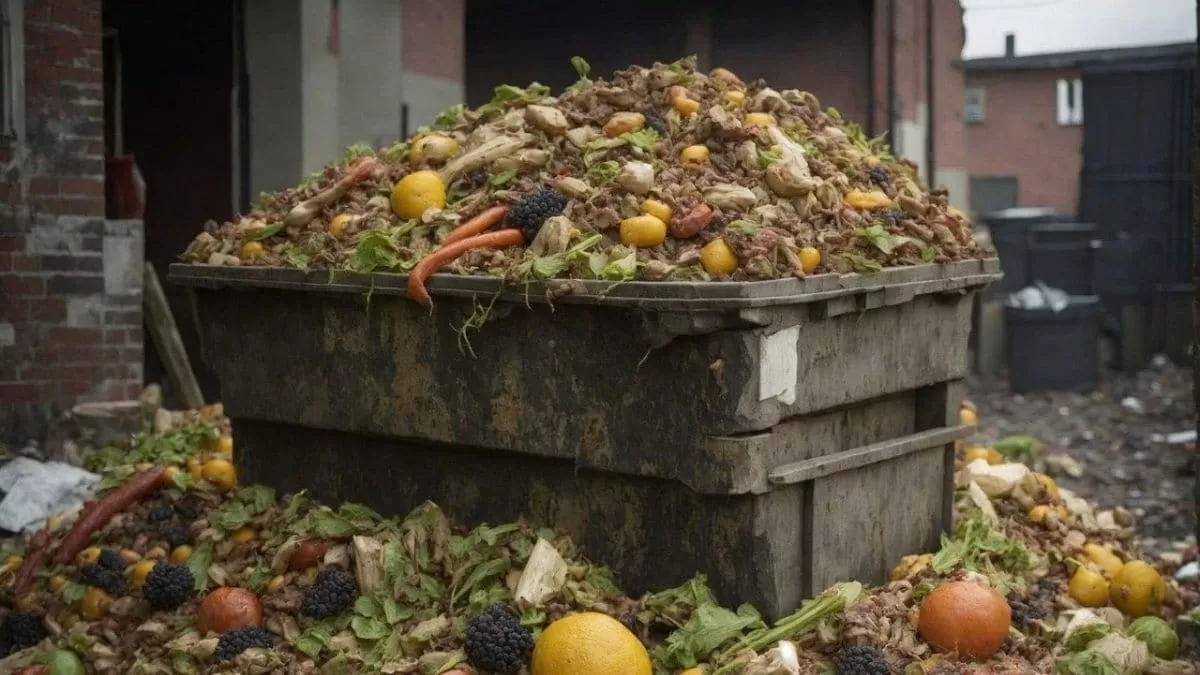Japan is known for its advanced technology, rich culture, and delicious cuisine. However, with a growing population and increasing food consumption, the country is facing a major challenge in managing food waste. According to a report by the Ministry of Agriculture, Forestry and Fisheries, Japan produces approximately 6.43 million tons of food waste every year. This not only has a negative impact on the environment but also poses economic challenges. However, Japan is now making strides in sustainability with an innovative approach to food waste.
Koichi Takahashi, the founder of the Japan Food Ecology Center, has developed a fermentation process that transforms leftover food into nutritious pig feed. This method not only addresses the issue of food waste but also contributes to the country’s efforts towards a more sustainable future.
The process involves collecting food scraps from various sources, including leftovers from supermarkets, restaurants, and households. These scraps are then mixed with microorganisms and fermented for a period of 10 days. The result is a nutrient-rich feed that is used to feed pigs, reducing the need for traditional feed sources such as corn and soybeans.
One of the major benefits of this method is its positive impact on the environment. Food waste that ends up in landfills produces methane gas, a potent greenhouse gas that contributes to climate change. By diverting food waste from landfills, this process helps to reduce greenhouse gas emissions and combat climate change.
Moreover, the use of this fermented feed also reduces the need for traditional feed sources, which require large amounts of land, water, and energy to produce. This not only helps to conserve natural resources but also reduces the carbon footprint of the livestock industry.
But the benefits of this innovative approach to food waste do not stop there. It also has a positive economic impact. By using food scraps to produce feed, farmers can save on the cost of purchasing traditional feed sources. This not only helps to increase their profits but also makes the livestock industry more sustainable in the long run.
In addition, the Japan Food Ecology Center also offers training and support to farmers who adopt this method. This not only helps to spread awareness about the importance of reducing food waste but also provides farmers with an alternative source of income.
The success of this method can be seen in the numbers. According to the Japan Food Ecology Center, the amount of food waste collected and processed has increased from 1,000 tons in 2013 to 10,000 tons in 2019. This has not only reduced the amount of food waste going to landfills but also provided enough feed to support the production of 50,000 pigs.
The impact of this innovative approach to food waste goes beyond just environmental and economic benefits. It also has a positive effect on the health and well-being of the pigs. The fermented feed is not only nutritious but also helps to improve the pigs’ digestive system, resulting in healthier and more productive animals.
The success of this method has also caught the attention of other countries facing similar challenges with food waste. The Japan Food Ecology Center has received inquiries from countries such as South Korea, China, and the United States, showing the potential for this method to be adopted globally.
In conclusion, Japan is making great strides in sustainability with its innovative approach to food waste. Koichi Takahashi and the Japan Food Ecology Center have shown that with determination and creativity, we can find solutions to some of the most pressing environmental and economic challenges. This method not only reduces food waste and its negative impact on the environment but also contributes to a more sustainable and prosperous future for all. Let us all take inspiration from Japan’s efforts and work towards a more sustainable world.

